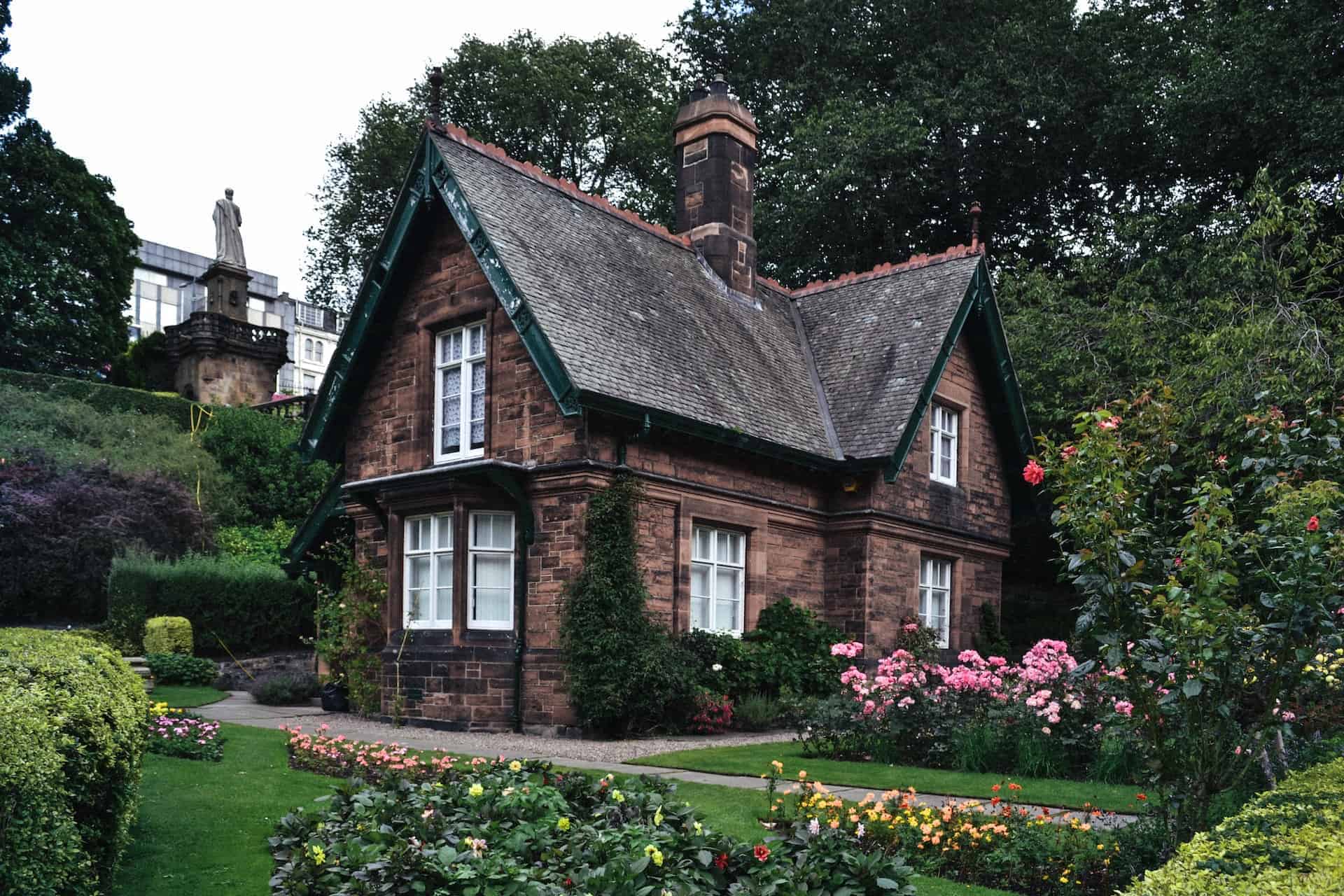We all know buying a house can be stressful, and it’s the biggest purchase we’ll make in our lives, so you need to know your time and money is being put into a sound investment. Whilst some buyers may be tempted to forego a building survey in the hope of saving some money, gaining a full understanding of your property and being made aware of any issues from a Chartered Surveyor is so important, and likely to save you a lot more money in the long run with research finding that 20% of buyers who don’t have a building survey pay £6,000 in unexpected repairs.
Damp
This is a common one and something we see in a lot of properties, but it’s not to be feared. There are a number of different types and causes of damp, but there are also plenty of remedial options.
Rising damp is often found in walls at ground floor level whilst penetrating damp can be located anywhere on a property, usually in an exposed location on the elevation or in close proximity to a rainwater pipe or other water source.
We’ll conduct moisture tests as we investigate the cause of the damp and will always explain your options. If damp is severe and we can’t gain access to enclosed parts of the construction which we suspect are at risk of decay, we may advise a further intrusive survey is undertaken by a specialist damp and timber surveyor.
Rot
You may have heard of some rot horror stories, but we believe there’s always a solution. Dry rot is able to form anywhere where you have timber, high moisture levels and air, and if untreated can develop into a costly issue. It’s one of the most feared types of rot for home owners as it has the ability to spread and develop across materials such as brick and in its final stages spores become airborne to other areas of the house not previously affected. Wet rot is usually confined to the timber where high moisture levels are present, typically rafter feet, joist ends and poorly maintained external joinery such as fascia’s or soffits. Building Surveys are non-intrusive so if we believe the issue needs a further intrusive investigation, we’ll recommend this within your report.
Our reports will highlight any rot issues we find, guiding you through your options and providing budget costs so you understand how much the issue may set you back. However, with any big hidden issues found, it may be time to negotiate with your vendor on the costs of repair.
Failed pointing & spalling brickwork
We’ve seen this one in a lot of properties. When external walls comprising a traditional brick or stone are repointed using a modern cement mortar rather than an original lime mortar, moisture trapped in the walls has to escape via the bricks themselves as cement does not provide the porosity and flexibility needed. This can result in deterioration of the mortar and damaged or spalling brickwork. It’s not one to worry about too much, provided its dealt with in a timely manner to prevent further damage to the masonry, but it’s really important to use the right materials and budget for this in future repair works.
Structural integrity
Small cracks are often nothing to worry about and usually just a sign of historic movement or deferential settlement, and many localised settlement issues can be related to other defects we’ll identify, however your surveyor will highlight and explain any potential signs of more significant structural movement or subsidence.
The vast majority of structural cracks can be identified and diagnosed by our surveyors within our initial report without further investigation. However, If we do identify anything potentially more serious, we’ll recommend an investigation be undertaken to assess the severity of any issues on the structural integrity of the property.
Roof condition
A roof is designed to last for a number of years, and when repairs are needed, some key elements can likely be retained. We’ll highlight any visible issues with the roof, from slipped or damaged tiles and vegetation build up, to leaking joints and repairs needed to the underlay, and outline how much repairs are likely to cost. Your roof might not be leaking now, but it might be nearing the end of its useful life and soon become a headache, our surveyors provide advice around the approximate age of the covering and a guide on its expected longevity, so you know what you might have to deal with in the long term.
Trees & invasive species
We don’t just look at the building, we also take a look at external areas such as the garden, boundary walls and fences, gates, patios and outbuildings. We’ll include any issues and remedial works needed to these areas within our reports, and will also make comment on potential for issues caused by large trees in close proximity to the building where the roots could cause damage, and if we spot invasive plant species such as Japanese Knotweed or Giant Hogweed. These can be difficult and costly to get rid of, and can cause damage to buildings and gardens if not dealt with, so are important to be aware of before purchasing the property.
Asbestos & deleterious materials
Some issues just can’t be seen to the untrained eye, and especially not on a 15 minute house viewing, but our surveys will highlight materials that can be dangerous to health if not dealt with correctly, such as asbestos, lead pipework and horsehair plaster reinforcement. Although these materials haven’t been used in homes for many years, they are still in place in many older properties and it’s important to understand how they should be dealt with. Managing or removing deleterious materials can be costly and detrimental to the enjoyment of your new home.
Vermin & insect damage
It’s not a nice one to think about but at some point a property may have had a few visitors, be that rats and mice, bees and wasps, or wood boring beetle. We’ll highlight any areas where vermin and insects may have made a home, and if there’s an active infestation we’ll provide the advice you need to get it sorted
Radon risk
The bubble bath we hear you ask. No, that’s Radox. Radon isn’t an issue a lot of homebuyers think of but areas of high radon can be harmful to health and increase the risk of lung cancer. We’ll include the radon risk for your property within your report, and highlight any testing needed and your next steps if there’s a high concentration noted.
What to do if these are highlighted in your survey?
Don’t worry, it’s good to have these issues uncovered now and we’ll be here every step of the way. If we find any issues during your survey, we’ll explain the cause of this in full and thoroughly guide you through the remedial options, providing costings and detailing your next steps.
The Fourth Wall standard
Fourth Wall Building Survey reports are bespoke, developed with you in mind and designed to ensure you fully understand your property and can move forward with your purchase with confidence. We’re passionate about cutting the jargon and making property accessible, so you’ll be met with an honest personal service throughout your property journey.
Our reports provide a unique insight into your property which other types of report don’t, including mobile and broadband speeds, noise and disturbance data, and budget costs as standard, and we provide it in a format which is easy to understand with photographs throughout.
To learn how we write and review our content for accuracy, take a look at our Editorial Policy.




